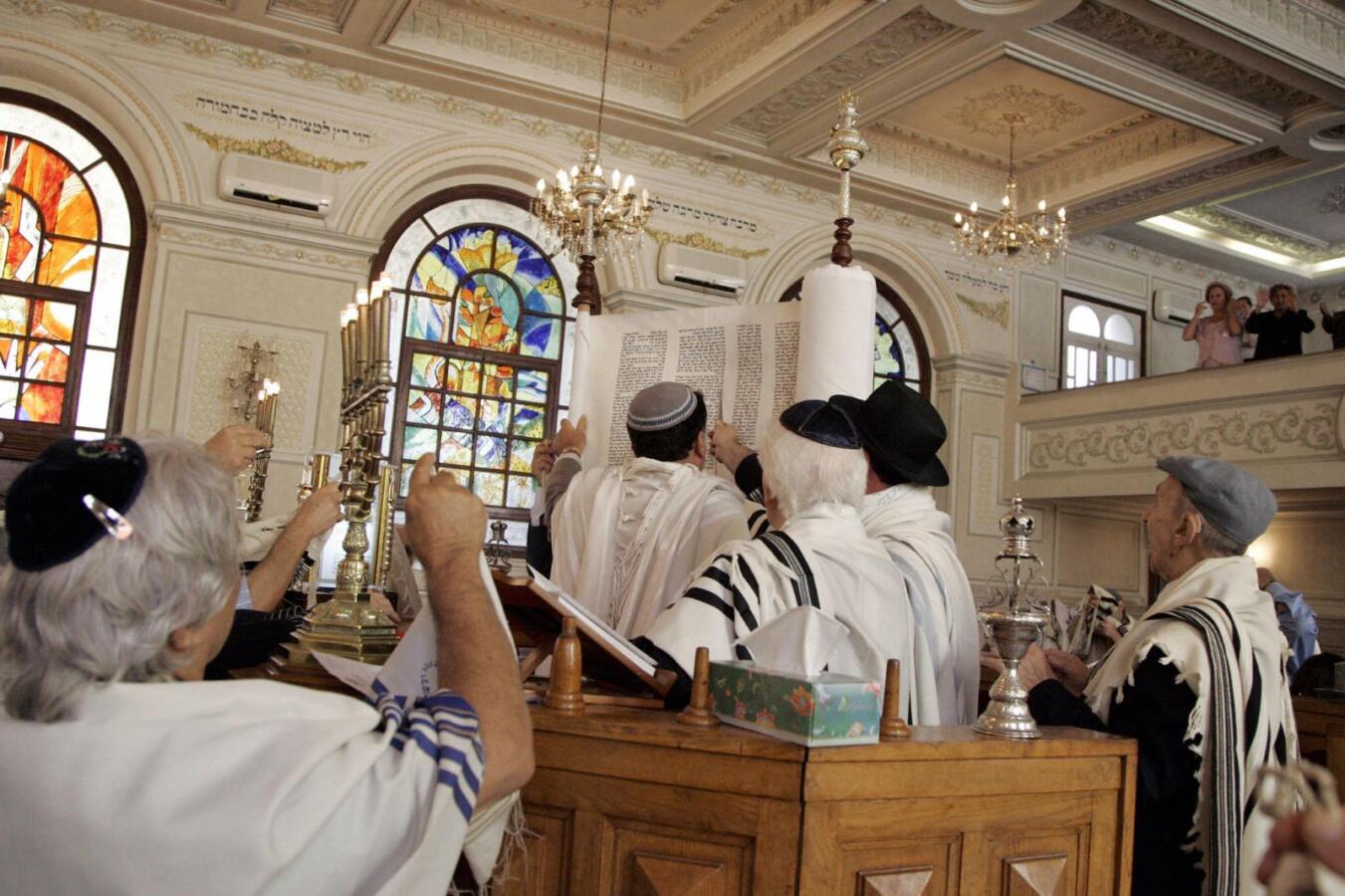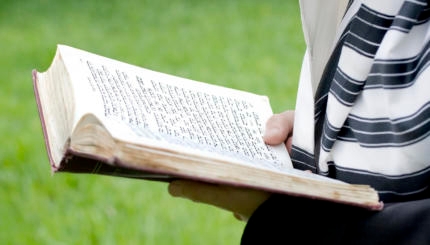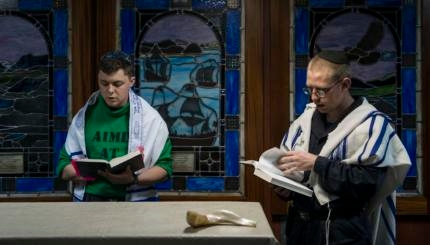The that falls between Rosh Hashanah and Yom Kippur is called Shabbat Shuvah, or the Sabbath of return. If that word reminds you of the word teshuvah, that’s not a coincidence — they share a common root.
Teshuvah, or repentance, is a core concept of the High Holidays. The word literally means “return.” Services on Shabbat Shuvah are typically solemn and focused. And the Haftarah portion deals with themes of repentance and forgiveness.
Ashkenazi Jews read Hosea 14:2-10 and Joel 2:15-27, while Jews read Hosea 14:2-10 and Micah 7:18-20. The selection from Hosea focuses on a universal call for repentance and an assurance that those who return to God will benefit from divine healing and restoration. The selection from Joel imagines a blow of the shofar that will unite the people in fasting and supplication. Hosea focuses on divine forgiveness and how great it is in comparison to the forgiveness of man.
Read more about the Haftarah for Shabbat Shuvah here.

Help us keep Jewish knowledge accessible to millions of people around the world.
Your donation to My Jewish Learning fuels endless journeys of Jewish discovery. With your help, My Jewish Learning can continue to provide nonstop opportunities for learning, connection and growth.
Historically, Shabbat Shuvah was also a time when the rabbi of the community would present a special sermon to the congregation. Though this is done every week in most contemporary communities, in previous eras a rabbi’s sermon was expected only twice a year: on Shabbat Shuvah and on Shabbat Hagadol, the Shabbat just prior to Passover. Sermons on Shabbat Shuvah traditionally focus on themes of repentance, prayer, and charity.
Sign up for My Jewish Learning’s RECHARGE, a weekly email with a collection of Shabbat readings and more to enhance your day of rest experience.
Yom Kippur
Pronounced: yohm KIPP-er, also yohm kee-PORE, Origin: Hebrew, The Day of Atonement, the holiest day on the Jewish calendar and, with Rosh Hashanah, one of the High Holidays.

Help us keep Jewish knowledge accessible to millions of people around the world.
Your donation to My Jewish Learning fuels endless journeys of Jewish discovery. With your help, My Jewish Learning can continue to provide nonstop opportunities for learning, connection and growth.
Haftarah
Pronounced: hahf-TOErah or hahf-TOE-ruh, Origin: Hebrew, a selection from one of the biblical books of the Prophets that is read in synagogue immediately following the Torah reading.

Help us keep Jewish knowledge accessible to millions of people around the world.
Your donation to My Jewish Learning fuels endless journeys of Jewish discovery. With your help, My Jewish Learning can continue to provide nonstop opportunities for learning, connection and growth.



